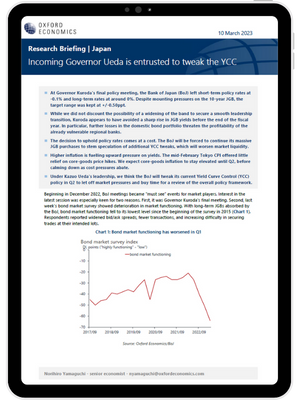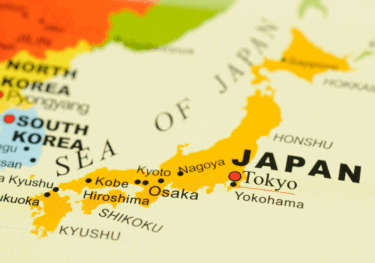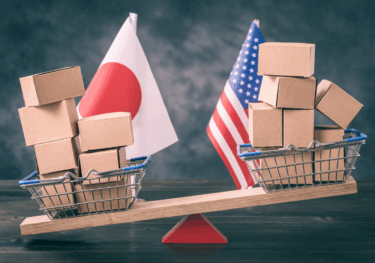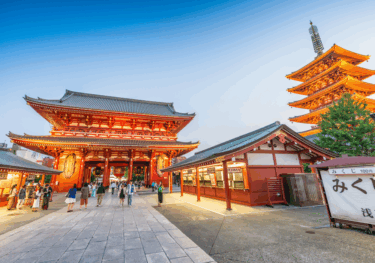Japan: Incoming Governor Ueda is entrusted to tweak the YCC

At Governor Kuroda’s final policy meeting, the Bank of Japan (BoJ) left short-term policy rates at -0.1% and long-term rates at around 0%. Despite mounting pressures on the 10-year JGB, the target range was kept at +/-0.50ppt.
While we did not discount the possibility of a widening of the band to secure a smooth leadership transition, Kuroda appears to have avoided a sharp rise in JGB yields before the end of the fiscal year. In particular, further losses in the domestic bond portfolio threaten the profitability of the already vulnerable regional banks.
What you will learn:
- The decision to uphold policy rates comes at a cost. The BoJ will be forced to continue its massive JGB purchases to stem speculation of additional YCC tweaks, which will worsen market liquidity.
- Higher inflation is fuelling upward pressure on yields. The mid-February Tokyo CPI offered little relief on core-goods price hikes. We expect core-goods inflation to stay elevated until Q2, before calming down as cost pressures abate.
- Under Kazuo Ueda’s leadership, we think the BoJ will tweak its current Yield Curve Control (YCC) policy in Q2 to let off market pressures and buy time for a review of the overall policy framework.
Tags:
Related Resouces

Post
Tariffs and Politics Leave the BoJ Powerless in Japan
The Bank of Japan kept its policy rate at 0.5% at its July meeting. We continue to think the BoJ will exercise caution on rate hikes despite still-high inflation and a recent trade deal with the US.
Find Out More
Post
US-Japan Trade Deal Fails to Shift Japan’s Growth Outlook
We estimate that the US's effective tariff rate on Japanese products is around 17%, in line with our baseline assumption. Lower tariffs on autos are a positive, given the sector's significant contribution to the economy and its broad domestic supporting base
Find Out More
Post
Japan’s Rising Political Instability Will Undermine Fiscal Discipline
The ruling Liberal Democratic party (LDP) and its partner Komeito lost their majority in Japan's upper house elections on July 20. Although Prime Minister Shigeru Ishiba will likely stay to avoid political gridlock, especially to complete tariff negotiations with the US, the political situation has become fluid and could lead to a leadership change or the reshuffling of the coalition.
Find Out More